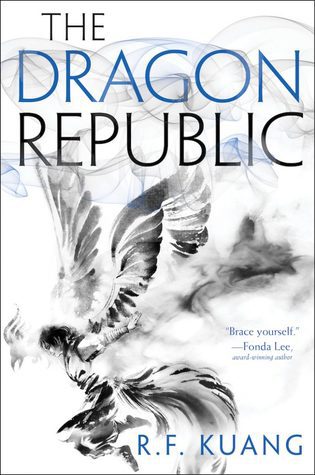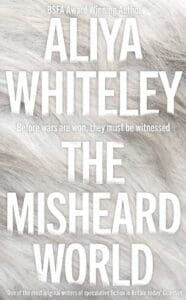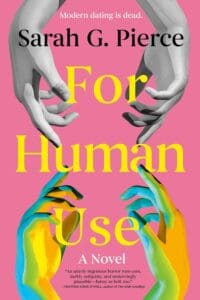Rating: 9.5/10
Synopsis
The searing follow-up to 2018’s most celebrated fantasy debut – THE POPPY WAR.
In the aftermath of the Third Poppy War, shaman and warrior Rin is on the run: haunted by the atrocity she committed to end the war, addicted to opium, and hiding from the murderous commands of her vengeful god, the fiery Phoenix. Her only reason for living is to get revenge on the traitorous Empress who sold out Nikan to their enemies.
With no other options, Rin joins forces with the powerful Dragon Warlord, who has a plan to conquer Nikan, unseat the Empress, and create a new Republic. Rin throws herself into his war. After all, making war is all she knows how to do.
But the Empress is a more powerful foe than she appears, and the Dragon Warlord’s motivations are not as democratic as they seem. The more Rin learns, the more she fears her love for Nikan will drive her away from every ally and lead her to rely more and more on the Phoenix’s deadly power. Because there is nothing she won’t sacrifice for her country and her vengeance.
The sequel to R.F. Kuang’s acclaimed debut THE POPPY WAR, THE DRAGON REPUBLIC combines the history of 20th-century China with a gripping world of gods and monsters, to devastating effect.
Review
The Dragon Republic is book 2 in The Poppy War series, and author R.F. Kuang really surprised me with the direction the story took. The synopsis tells us that the book is about war, but I did not expect it to go so deep in the trenches. For many reasons, I found that backdrop to be a great direction for the book to go.
But first, let us address Rin. This book saw her grow and evolve in many ways. She gets to use her prowess for strategy and war tactics. She learns more about how her powers work and her relationship to the Gods. In general, Rin learns a lot about herself. But, she does not actually change much as a person. She is still kind of an annoying know-it-all, still angry and hateful, and still willing to put other people in danger to accomplish her goals. That has led me to enter this love-hate relationship with her, because in many ways I identify with her journey; but, I also cannot imagine being okay with doing some of the things she has done. That is why she continues to be an incredibly intriguing character: I do not find myself rooting for her, but at the same time I cannot look away. She is the proverbial train wreck.
Speaking of love-hate relationships, we get a lot more Nezha in this book. Rin has joined forces with Nezha’s father (Yin Vaisra, The Dragon Warlord) in what is supposed to be a symbiotic relationship: Vaisra gets to use her as his ace-in-the-hole weapon, and Rin gets to be part of the army who takes revenge on Su Daji. Of course, there are many surprises along the way, but one constant throughout the story is Rin and Nezha’s on-again off-again friendship. Being a part of The Dragon Warlord’s army, Rin spends a lot of time with the Yin family, and we get to know Nezha’s father and his brother Jinzha by proxy. Not only is there a lot of politicking in the book, but family dynamics come in to play very much, as well. I really like this aspect of the story because I think it added a lot of depth to what was on the surface. And Rin and Nezha? Basically the same as always, just more intense: at times Nezha is a calming factor, other times he fans the flames of her rage (pun intended). He is a good compliment to her personality, and I enjoyed the back and forth.
I really want to point out how happy I was with the plot of The Dragon Republic. The over-arching story in the series is quite heavy. The first book in the series, The Poppy War, is a difficult read for some because it is so dark and brutal. It is not necessarily that The Dragon Republic is much less so, just that the Revolution that is happening gives the reader something else to focus on. Rin is still the center of attention, and she still goes through some heavy shit (most of it the result of her own questionable decisions), but there are so many moving parts to this war that the reader is able to pivot to that aspect of the story at times and take an emotional load off a little. There are a lot of politics, and I was impressed with the discussions of war tactics and strategies. All of Nikan is a chessboard, and Kuang moves the pieces expertly around the board, while, of course, setting things up for the book 3 finale.
This book has similar drawbacks to book 1, in my opinion. While I thought it was a little better this time around, I still have beef with the chapter lengths; they are too long, and at times it feels like a bit of a slog. Also, again, some scenes are just clipped off with no explanation or transition to what is happening next. But, again, there is so much intrigue and tension built into the story that it makes it easy to power through those parts.
A near-perfect follow-up to The Poppy War, The Dragon Republic introduces some much-needed balance to the series. The direction of the plot surprised me in a good way. This is not easy world to live in, and book 2 affords the reader a lot more history and depth of knowledge. The Revolution waged by The Dragon Warlord against the Empire is a much-needed distraction from what is happening with Rin. Rin is still Rin, though, and her story continues to be one of anger and vengeance.
Due to the heaviness and brutality, again I cannot give this book a blanker recommendation; but for fans of The Poppy War, I definitely recommend you read The Dragon Republic.





[…] quite a ride. You can find my reviews of the previous books in the series here: The Poppy War and The Dragon Republic.I am actually going to begin this review with the aspects of this book that I did not like. There […]